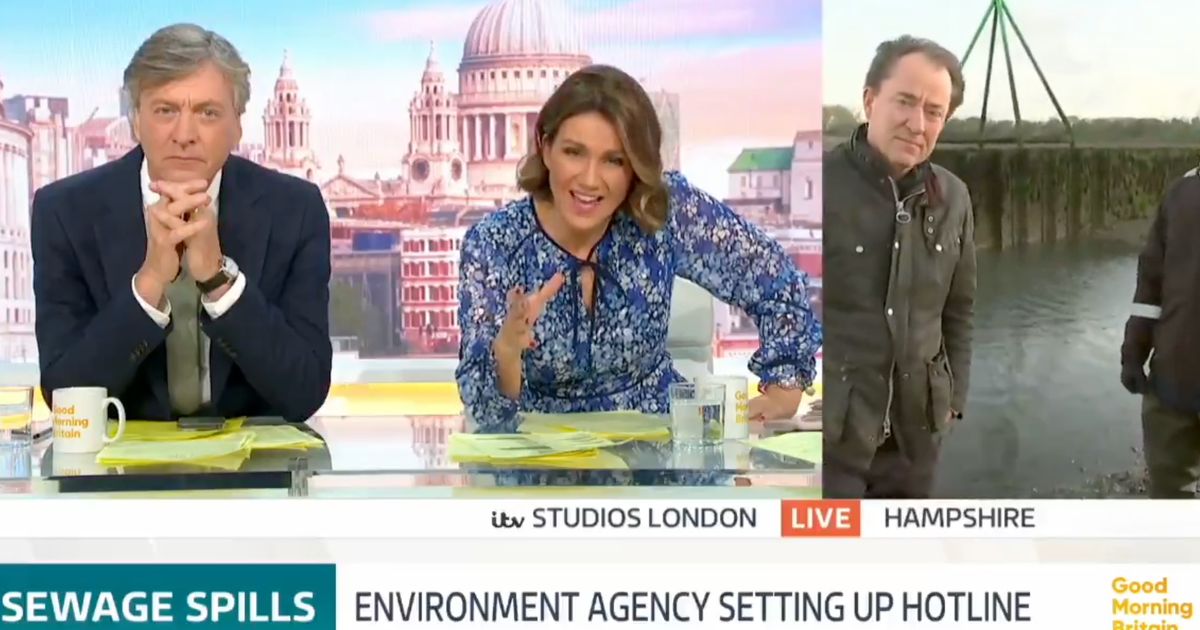Thames Water, Britain’s biggest water supplier, could be placed in temporary state ownership if it fails to secure extra funding to pay-off huge debts, it has been reported.
Fears over the collapse of the utility that supplies about a quarter of Britain’s population is the latest controversy to beset the industry, and has prompted a debate over whether the sector should be nationalised again after being sold-off in the 1980s.
What’s the problem?
Put simply, Thames Water is struggling with a £14 billion debt pile and rising interest rates – and needs to raise money to service it. The company said it was “continuing to work constructively” with its shareholders to help raise the £1 billion of fresh equity it says it needs to operate.
Thames Water is owned by a consortium of institutional investors that includes a Canadian pension fund. Around £1 billion of its debt is due to be repaid by the end of 2024, on top of other loans.
In a sign of the pressure the company is under, chief executive Sarah Bentley stepped down with immediate effect on Tuesday after two years trying to revive its fortunes.
What is the government doing to help?
The government has held talks with the regulator Ofwat about the situation, while water minister Rebecca Pow said it would act to ensure water keeps flowing regardless of the company’s financial situation. She told MPs it was not her place to comment on the financial position of a company, but said water firms were “considered resilient”.
Sky News reported earlier that, under contingency plans being drawn up, Thames Water could be placed into a “special administration regime”, effectively state ownership.
That happened in 2021 in the energy supply sector, which like water is also a privatised regulated industry, when the government rescued energy supplier Bulb after it collapsed, in a deal which cost taxpayers hundreds of millions of pounds.
Ofwat said it had been in ongoing talks with Thames Water about the need for a credible plan to turn the business around.
What about re-nationalisation?
The industry was privatised by Margaret Thatcher’s Conservatives in 1989. Most water systems are in the public sector, including in Scotland and Northern Ireland.
The idea was the private sector was better placed to improve drinking water and keep rivers and beaches clean than the government, which would always prioritise areas such as schools and the NHS.
But the rationale has come under scrutiny in recent years amid a public outcry over the release of sewage into rivers and seas.
Such releases of sewage are only supposed to happen during exceptional rainfall to stop it backing up into homes, but campaigners say water companies are discharging sewage much more often than they should.
In 2022, water companies in England alone released raw sewage into rivers and the sea 301,091 times, an average of 825 times a day, according to data from the Environment Agency.
Public anger has been further stoked by the payment of dividends to investors and large salaries and bonuses to water industry executives.
Thames Water said in its annual report in October that it had not paid a dividend to its shareholders for the last five years. Previous owners Australia’s Macquarie, however, was paid a dividend of £1.6 billion pounds over the decade to 2016, according to the Financial Times.
Labour’s shadow climate and net zero secretary Ed Miliband has said that the feared collapse of Thames Water is a “total scandal” but has insisted that the party are “cautious about nationalisation of water companies”.
He told Andrew Marr on LBC nationalising the water companies “would involve… billions of pounds of public money being given to the water companies’ shareholders”.
But Cat Hobbs, of the campaign group We Own It, said England’s privatised water companies “treat our rivers and seas like a sewer and their customers (who have no choice) like an ATM” – and the costs of re-nationalisation should not be off-putting.
She told The Guardian: “We, the public, should own them but we don’t, so they work for their shareholders around the world, not for us. That’s why our water bills prop up a profiteering racket instead of being invested to clean up the raw sewage in our rivers.
“That means buying back the assets because Thatcher sold them off wholesale but in return we’ll get assets. Bringing water into public ownership pays for itself in around six years.”







